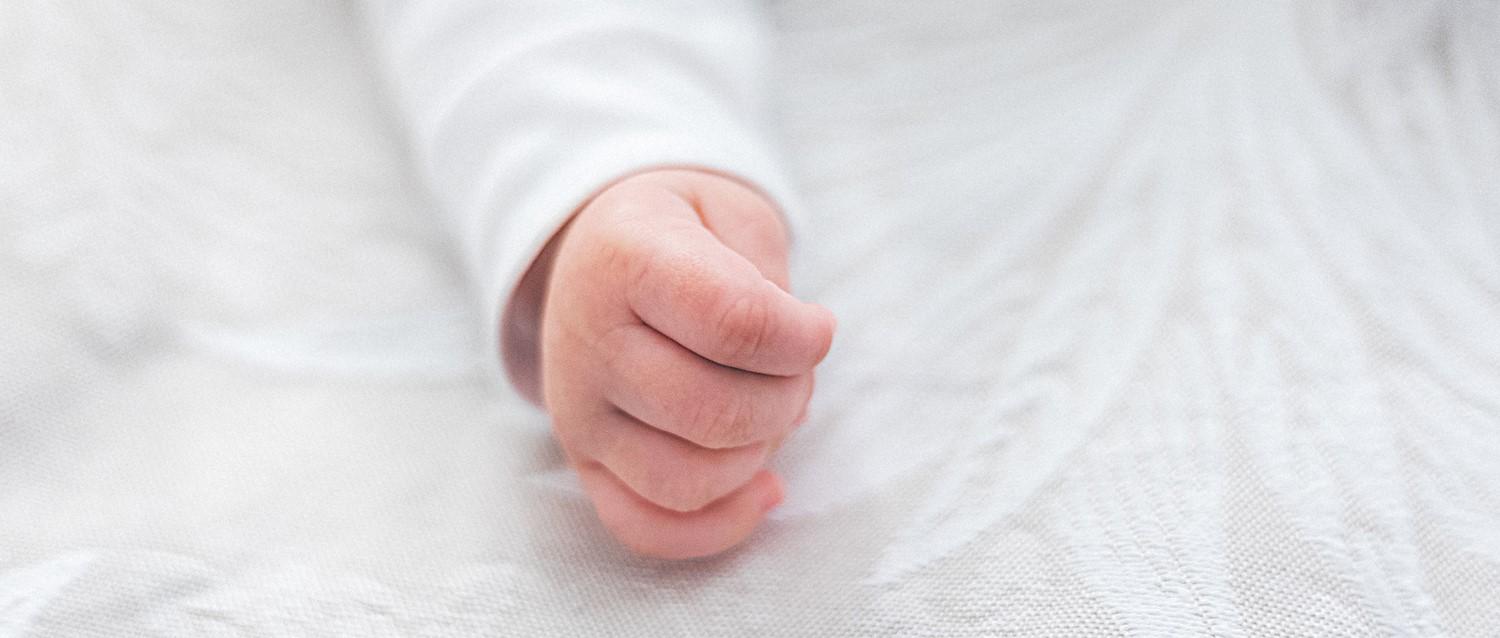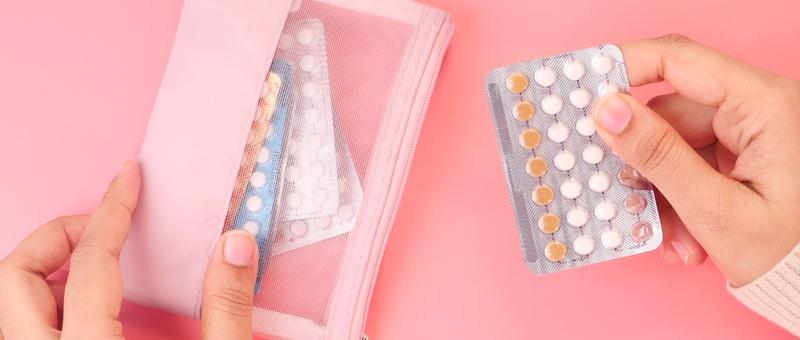
What to do about contraception after giving birth
Peer reviewed by Dr Colin Tidy, MRCGPLast updated by Sarah GrahamLast updated 17 Jul 2019
Meets Patient’s editorial guidelines
- DownloadDownload
- Share
- Language
- Discussion
Sex is probably the last thing on your mind in the immediate aftermath of giving birth. But with half of new parents returning to sexual activity within six weeks, it's worth considering your postpartum contraceptive options early on, so you're covered when the time comes.
In this article:
"We know that fertility can resume quite soon after childbirth - as early as three to four weeks in women who are not exclusively breastfeeding, which I think is much earlier than a lot of couples realise," explains Dr Michelle Cooper, a gynaecologist, researcher, and spokesperson for charity Wellbeing of Women.
"We also know that sexual activity can resume earlier than we might think. At least 50% of couples will have started having sex again by six weeks. So these two things combined means that women are actually at quite high risk of an unintended pregnancy in those early weeks and months after giving birth, unless they're using some form of contraception," she adds.
Continue reading below
How common are unintended pregnancies?
Accidental pregnancies shortly after birth are surprisingly common. Data from Lothian, where Cooper is based, show that one in 13 women who attend abortion services will do so within 12 months of giving birth - and these figures are thought to reflect most areas of the UK.
The data is similar for women conceiving and continuing with a pregnancy within a year of giving birth, Cooper adds, again coming out at around one in 13. "It's actually quite a bit higher than I think any of us realised before we looked at the data," she says.
Part of the problem, Cooper explains, is that the relatively quick return to both fertility and sexual activity for many women is also compounded by practical issues with accessing contraception as a new parent.
"Once you leave the hospital or birth unit, contraception is probably not the top of your agenda. It can be very difficult to access appointments so, when we survey women, the vast majority of them say that if they had the choice they would much prefer to be able to access contraception before leaving hospital," she says.
What are the risks?
Besides the obvious logistical difficulties associated with having two babies in close succession, Cooper explains that conceiving again within 18 months or less - what's known as a 'short inter-pregnancy interval' - also puts that subsequent pregnancy at "much higher" risk of complications, including preterm labour, low birth-weight babies, stillbirth, and an overall increase in neonatal mortality.
"Things like maternal age or smoking status can also increase those risks, but even when you account for all of that, there is still a persistent risk just from having that short interval - which I'm not sure women realise, and I'm not sure as healthcare professionals we're always discussing this proactively with women either," she says.
Continue reading below
Is breastfeeding an effective contraceptive?
Breastfeeding has long been considered an effective form of contraception for women who choose to exclusively feed their baby in this way - but how effective really is it, and for how long?
There are a couple of aspects to this, Cooper explains. "When we think of breastfeeding, yes it can be a contraceptive, but it's not just breastfeeding alone. What we're talking about is the lactational amenorrhoea method," she says.
"For that to be effective, the woman needs to be exclusively breastfeeding - breastfeeding fairly regularly throughout the day and night, avoiding any top-ups or other fluids, or the use of pacifiers. She also needs to be within six months after giving birth, and needs to have absent periods."
If those three criteria are met, she adds, this method is about 98% effective in preventing subsequent pregnancies. However, breastfeeding rates typically drop quite significantly, and by six weeks after birth only around 30 to 35% of women are still breastfeeding exclusively. If you've stopped breastfeeding or switched to combination feeding, your periods have restarted, or your baby is more than six months old, you do need to be using contraception.
It's also worth noting that most of the other very effective forms of contraception - both hormonal and non-hormonal - are safe for use by breastfeeding women. "There's no reason why you couldn't breastfeed while also being on a reliable form of contraception so that, if you do reduce your breastfeeding, you've still got that contraceptive cover," Cooper says.
What contraceptive options are available after giving birth?
You can use any of the normal contraceptive options after birth, with the exception of combined hormonal methods - that is, the combined pill, the combined patch, and the vaginal ring. These are not suitable for at least three weeks after birth, or six weeks in breastfeeding women, because there isn't currently enough evidence to say that oestrogen, which is used in combined contraceptives, doesn't affect milk production.
Safe methods of contraception to use after giving birth are the IUS or IUD coil, the contraceptive implant or injection (all more than 99% effective), the progestogen-only pill (POP, or 'mini pill' - 99% effective if taken correctly), or male or female condoms (respectively 98 and 95% effective if used correctly).
Cooper's current research, funded by Wellbeing of Women, and led by Dr Sharon Cameron at the University of Edinburgh, explores giving women the option of having a coil fitted while they're still in hospital following the birth. "They have a choice of whichever intrauterine method they want - the hormone coil or the non-hormone copper coil. The current clinical guidance on this from the Faculty of Sexual and Reproductive Healthcare (FSRH) would say that it's safe to have those fitted within the first 48 hours of birth, but until recently this hasn't really been available for women in the UK," she explains.
"Our study was designed to try to introduce the service, to see how acceptable it was to women, and to evaluate the outcomes of it. I think we're the first maternity unit in the UK now offering this to all women, whether they have a caesarean section or a vaginal birth - although the option of having a coil fitted during a C-section has been around for longer and is more widely available," Cooper adds.
"These longer-acting methods, such as the coils and the implant, have been shown to reduce the risk of having an unintended pregnancy or short inter-birth interval in those months after giving birth," she says. "But we know that if women have to wait until several weeks after giving birth before having one fitted in the community, at least 50% of women don't attend. So having the option available to get it fitted at the time is really positive and convenient," she says.
Continue reading below
What if you can't access contraception in hospital?
Of course, if you're not giving birth in Lothian, this may not be an option for you yet - although Cooper hopes their research will present a strong case for rolling out the service across the UK. Alternative options like having an implant fitted may or may not be available in your maternity unit, but otherwise you may have to wait until at least four weeks postpartum before attending in the usual way either your GP practice or your sexual health clinic.
"We know that having to wait those four weeks can sometimes be a bit of a barrier for women, so this is why we're trying to simplify it for them," Cooper says. "The more evidence we can produce from these types of studies, and the more we can demonstrate that women want this, hopefully the more they will be able to access it across the board."
Patient picks for Contraception

Sexual health
What is post-birth control syndrome?
After stopping birth control, you may notice physical or emotional changes in your body. While not officially recognised as a medical condition, these symptoms are often referred to as post-birth control syndrome (PBCS).
by Victoria Raw

Sexual health
Does hormonal contraception affect your sex drive?
Anyone who has used hormonal contraception has most likely seen the long list of potential side effects. Next to the health warnings, 'change in sex drive' is easy to ignore. But for women who experience them, changes in libido can be frustrating and upsetting.
by Milly Evans
Continue reading below
Article history
The information on this page is peer reviewed by qualified clinicians.
17 Jul 2019 | Latest version

Ask, share, connect.
Browse discussions, ask questions, and share experiences across hundreds of health topics.

Feeling unwell?
Assess your symptoms online for free
Sign up to the Patient newsletter
Your weekly dose of clear, trustworthy health advice - written to help you feel informed, confident and in control.
By subscribing you accept our Privacy Policy. You can unsubscribe at any time. We never sell your data.